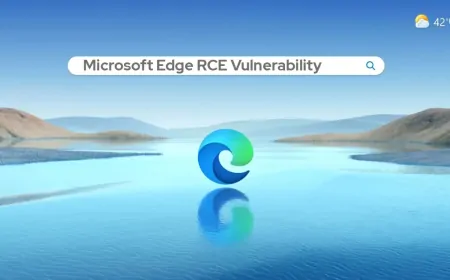Why Are Cross-Border Investigations Critical in Cybercrime Cases?
Imagine a hacker in one country stealing data from a company halfway across the globe or a ransomware attack shutting down hospitals in multiple nations. Cybercrime doesn’t respect borders, and neither can the efforts to stop it. In today’s interconnected world, cybercrimes like hacking, phishing, or online fraud often involve perpetrators, victims, and servers spread across different countries. This makes cross-border investigations—where law enforcement agencies from multiple nations work together—absolutely essential. These investigations help track down cybercriminals, recover stolen assets, and prevent future attacks. Whether you’re a business owner worried about data breaches or just curious about how the world fights cybercrime, this blog will explain why cross-border investigations are critical, how they work, and the challenges they face, all in a way that’s easy to understand, even if you’re new to the topic. Let’s dive in and explore how the global fight against cybercrime keeps us safer.

Table of Contents
- What Are Cross-Border Investigations?
- Why Cross-Border Investigations Are Critical
- Methods of Cross-Border Investigations
- Legal Frameworks Supporting Investigations
- Comparing Cross-Border Approaches
- Challenges in Cross-Border Investigations
- Conclusion
- Frequently Asked Questions (FAQs)
What Are Cross-Border Investigations?
Cross-border investigations involve law enforcement agencies from different countries working together to investigate and combat cybercrimes that cross national boundaries. Cybercrime, like hacking, ransomware, or online fraud, often involves perpetrators in one country, victims in another, and digital evidence—like servers or data—stored in yet another. These investigations require cooperation to share information, track criminals, and gather evidence across jurisdictions. For example, if a hacker in Russia targets a bank in the U.S., authorities in both countries might collaborate to catch the culprit.
For everyday people, this means the police in your country can work with others worldwide to protect you from cyber threats. For governments, it’s a way to tackle crimes that are too complex for one nation to handle alone.
Why Cross-Border Investigations Are Critical
Cybercrime is a global problem, and cross-border investigations are essential to address it effectively. Here’s why they matter:
- Global Nature of Cybercrime: Cybercriminals operate across borders, using servers or networks in multiple countries, making international cooperation necessary to track them.
- Evidence Collection: Digital evidence, like emails or server logs, is often stored in different countries, requiring cross-border access to build a case.
- Stopping Transnational Threats: Crimes like ransomware or terrorism often involve global networks, and cross-border efforts help disrupt these operations.
- Recovering Assets: Stolen funds or data can be traced and recovered through international collaboration, helping victims get justice.
- Deterrence: Successful cross-border investigations show cybercriminals that they can’t hide behind borders, discouraging future crimes.
Without cross-border investigations, many cybercriminals would evade justice, leaving victims vulnerable and digital systems at risk.
Methods of Cross-Border Investigations
Law enforcement agencies use specific methods to conduct cross-border cybercrime investigations. Here’s how they work:
- Data Sharing: Countries share data, like IP addresses or transaction records, to trace cybercriminals across borders.
- Mutual Legal Assistance Treaties (MLATs): These agreements allow countries to request evidence, like server data, from one another legally.
- Joint Task Forces: Agencies like Interpol or Europol form international teams to coordinate investigations and share expertise.
- Digital Forensics: Experts analyze digital evidence, such as malware or hacked devices, to link crimes to perpetrators across countries.
- Real-Time Collaboration: Agencies use secure platforms to share intelligence instantly, speeding up responses to fast-moving cyber threats.
These methods enable governments to work together efficiently, ensuring cybercriminals are caught no matter where they hide.
Legal Frameworks Supporting Investigations
Cross-border investigations rely on legal frameworks to ensure cooperation is lawful and effective. Here are key frameworks:
- Budapest Convention on Cybercrime: Signed by over 60 countries, this treaty promotes international cooperation, standardizing laws and evidence-sharing for cybercrime.
- Mutual Legal Assistance Treaties (MLATs): Bilateral agreements allow countries to request and share evidence, like data from tech companies, for investigations.
- Interpol’s Cybercrime Program: Interpol facilitates global police cooperation, providing tools and training for cross-border investigations.
- Europol’s European Cybercrime Centre (EC3): EC3 coordinates investigations across EU countries, focusing on cybercrimes like hacking and fraud.
- Cloud Act – USA: This law allows U.S. authorities to access data stored abroad and enables foreign governments to request U.S.-held data under agreements.
These frameworks create a structured way for countries to collaborate, ensuring investigations are legal and effective.
Comparing Cross-Border Approaches
Countries approach cross-border investigations differently, based on their laws and priorities. Here’s a comparison:
| Region | Key Framework | Focus | Strength | Challenge |
|---|---|---|---|---|
| EU | Budapest Convention, EC3 | Cooperation, privacy | Strong coordination | Strict privacy laws slow processes |
| USA | Cloud Act, MLATs | Fast data access | Tech company cooperation | Privacy concerns |
| Asia (e.g., China) | National laws, ASEAN | State control | Rapid domestic action | Limited global cooperation |
| Global | Interpol, Budapest | Broad collaboration | Wide reach | Varying legal standards |
| Australia | MLATs, Budapest | Security, cooperation | Strong alliances | Resource limitations |
The EU emphasizes cooperation and privacy, the U.S. focuses on quick data access, and Asia prioritizes state control, while global frameworks like Interpol aim for broad collaboration.
Challenges in Cross-Border Investigations
Cross-border investigations face significant hurdles that can slow down or complicate efforts. Here are the main challenges:
- Different Legal Systems: Countries have varying laws on data access and privacy, making it hard to share evidence legally.
- Slow Processes: MLATs and other agreements can take months, allowing cybercriminals to cover their tracks.
- Jurisdictional Conflicts: Disputes over which country has authority can delay investigations or lead to legal battles.
- Privacy Concerns: Strict privacy laws, like GDPR, can limit data sharing, complicating cross-border efforts.
- Resource Gaps: Some countries lack the technology or expertise to participate fully in investigations.
These challenges highlight the need for faster, more standardized global cooperation to fight cybercrime effectively.
Conclusion
Cross-border investigations are the backbone of fighting cybercrime in a world where digital threats know no borders. By enabling countries to share data, track criminals, and recover assets, these investigations tackle complex crimes like hacking, ransomware, and online fraud. Legal frameworks like the Budapest Convention and Interpol’s programs provide the structure for this cooperation, while methods like digital forensics and joint task forces make it effective. However, challenges like differing laws, slow processes, and privacy concerns can hinder progress. For individuals and businesses, understanding the importance of cross-border investigations means appreciating the global effort to keep the internet safe. As cybercrime continues to evolve, stronger international collaboration will be key to staying one step ahead of criminals.
Frequently Asked Questions (FAQs)
What are cross-border investigations?
Cross-border investigations involve law enforcement from multiple countries working together to combat cybercrimes that cross national borders.
Why are cross-border investigations important?
They’re critical because cybercrimes often involve perpetrators, victims, and evidence in different countries, requiring global cooperation.
What is the Budapest Convention?
It’s a global treaty that standardizes cybercrime laws and promotes international cooperation for investigations.
What are Mutual Legal Assistance Treaties (MLATs)?
MLATs are agreements allowing countries to request and share evidence, like data, for criminal investigations.
How do governments share data in investigations?
They share data like IP addresses or server logs through secure platforms or legal agreements like MLATs.
What is digital forensics?
Digital forensics involves analyzing digital evidence, like malware or hacked devices, to trace cybercriminals.
How does Interpol help in cybercrime?
Interpol’s Cybercrime Program facilitates global police cooperation, providing tools and training for investigations.
What is Europol’s EC3?
EC3 is Europol’s center coordinating cybercrime investigations across EU countries, focusing on hacking and fraud.
What is the Cloud Act?
The U.S. Cloud Act allows authorities to access data stored abroad and enables foreign governments to request U.S. data.
Can cross-border investigations recover stolen money?
Yes, they can trace and recover stolen funds or assets by tracking transactions across countries.
Why do cybercrimes cross borders?
Cybercriminals use global servers and networks to hide their location and target victims worldwide.
How do privacy laws affect investigations?
Laws like GDPR can limit data sharing, slowing down cross-border investigations to protect privacy.
What is a ransomware attack?
Ransomware is malware that locks data until a ransom is paid, often requiring cross-border efforts to investigate.
Why are cross-border investigations slow?
Legal processes like MLATs and differing national laws can delay evidence sharing and cooperation.
Can small countries fight cybercrime?
Yes, but they may lack resources, relying on global frameworks like Interpol for support.
What is a joint task force?
It’s an international team of law enforcement agencies coordinating to investigate complex cybercrimes.
How do investigations stop cybercriminals?
They track perpetrators, gather evidence, and disrupt operations through arrests or asset seizures.
Do all countries cooperate in investigations?
Not always; some countries have limited cooperation due to differing laws or political tensions.
Can individuals help cross-border investigations?
Yes, by reporting cybercrimes to local authorities, who can escalate cases internationally.
How can I stay safe from cybercrime?
Use strong passwords, update software, and report suspicious activity to support global investigations.
What's Your Reaction?









































































